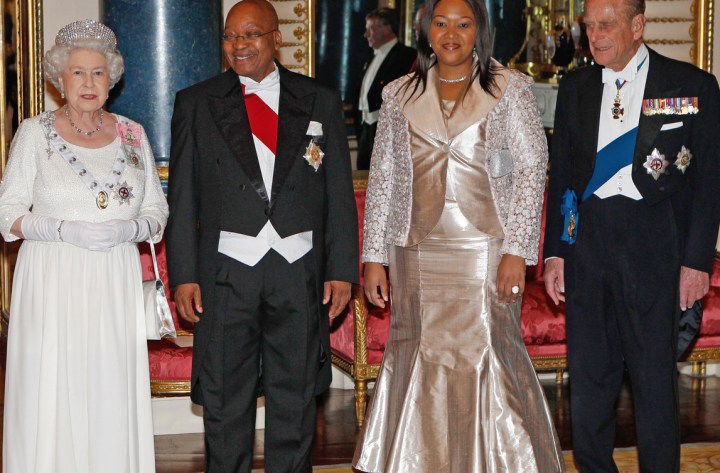Politics
Analysis: The big three mistakes of President Zuma’s UK visit

President Jacob Zuma’s official visit to the UK was meant to reinvigorate his presidency and underline his prowess as a diplomatic force. But, despite the spectacular pomp and ceremony, it’s having the opposite effect.
It’s becoming increasingly apparent that the visit was designed both by the British and the presidency as a public relations effort par excellence, with the British doing what they do best – putting on a spectacular global show, including state dinners and horse carriage parades down the mall, with half an eye to boosting Zuma’s position back home.
But three things are making this whole effort go pear-shaped.
The most obvious is the remorseless British press, whose harsh judgement on Zuma’s foibles stands in stark contrast to the deferential South African press – a critical miscalculation by the image constructors both in the presidency and within the British diplomatic core.
Just as the South African press itself misjudged the public mood about Zuma’s latest love child revelation, the image consultants within the presidency didn’t factor in the possibility that the British press would not fawn over a South African leader, as it has in the past for both former presidents Nelson Mandela and Thabo Mbeki. The mood in British newsrooms about Zuma ranges from morbid fascination to outright condemnation, and it’s instructive that neither the British nor the South African government was conscious of this fact.

Photo: Britain’s Conservative Party Leader David Cameron (C) and Shadow Foreign Secretary William Hague meet President Jacob Zuma at Buckingham Palace in London March 3, 2010. REUTERS/Stefan Rousseau
The second problem for Zuma has been his reaction to this press critique.
Zuma has chosen to respond personally, and to cast this criticism as an attitude latently inherent to the British public, accusing them of still considering themselves superior to “barbaric” Africans whom “they” colonised. To begin a diplomatic tour criticising not only the criticism but the character of the entire population of the host country is so spectacularly undiplomatic, it is startling. As bland as his response was, Zuma would have been much better advised to leave it to someone else in his party, and hold fire until back on home soil.
So now, his comments to the contrary about the British at official functions seem hollow. Addressing the British Queen at a state dinner, Zuma said: “The United Kingdom and South Africa share a long history. We wish to express our deep gratitude to the British people for their generous support to us during the struggle against apartheid. We cannot forget the extraordinary role they played at the forefront of a global movement for a free South Africa, as the global Anti-Apartheid Movement has its roots in this country.” But which is it? Are they venal, colonial bigots or brave comrades in the fight against apartheid?
The third problem is that Zuma has chosen to make the set piece of his tour a fight over British sanctions against Zimbabwe. There may be good reasons for such an initiative; the debate between South Africa and the UK about Zimbabwe has been going on for more than a decade, and who knows what the latest interminable wrangling is about.
Yet, raising the debate at this time simply exacerbates public perception of Zuma as a classic African “big man” ruler, supporting perhaps the ultimate African “big man” ruler, a suspicion already held within diplomatic circles.
That characterisation would be extremely unfair; Zuma is actually very far from acting in this way, notwithstanding his classic “big man” response to someone who “waved” at his blaring cavalcade of black Mercedes-Benzes. For all his other foibles, he doesn’t have the callous carelessness and thuggish arrogance of the classic African “big man” leader.
Yet effectively coming out in favour of Zimbabwean leader Robert Mugabe, who has taken his country back deep into feudal misery, may satisfy a home agenda, but it’s absolutely the wrong message to take to the UK, where it will tend to exacerbate public hostility and raise suspicious about Zuma’s true character.
Zuma has taken with him a large business delegation, and underlined the commercial relations between the countries. This may be an absolutely necessary, yet totally boring focus for the trip.
But that is where he should have concentrated his efforts: on business. The first rule of diplomacy is you have to tell your interlocutors where to get off in such a way that they enjoy the trip.
But they are not. And neither is he.
By Tim Cohen
Read more: Times Online, Telegraph, Guardian
Main photo: Britain’s Queen Elizabeth II poses for a photo with South Africa’s President Jacob Zuma, Mrs Tobeka Madiba Zuma and the Duke of Edinburgh on their way to the state banquet in Mr Zuma’s honour at Buckingham Palace, in London, March 3, 2010. REUTERS/Andrew Winning





 Become an Insider
Become an Insider